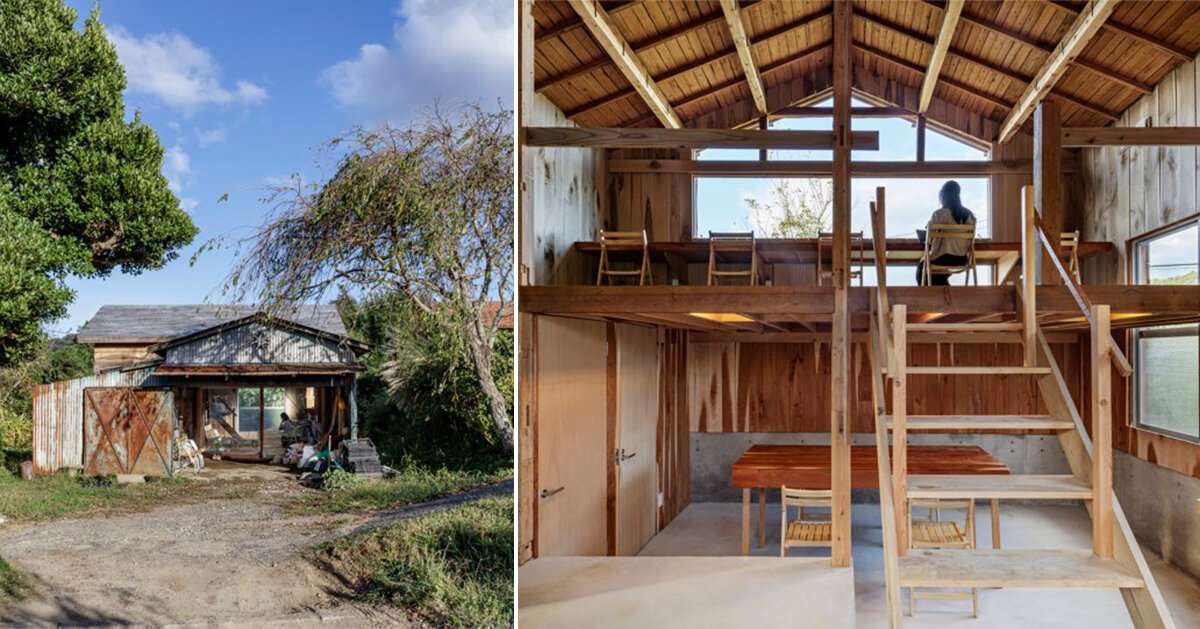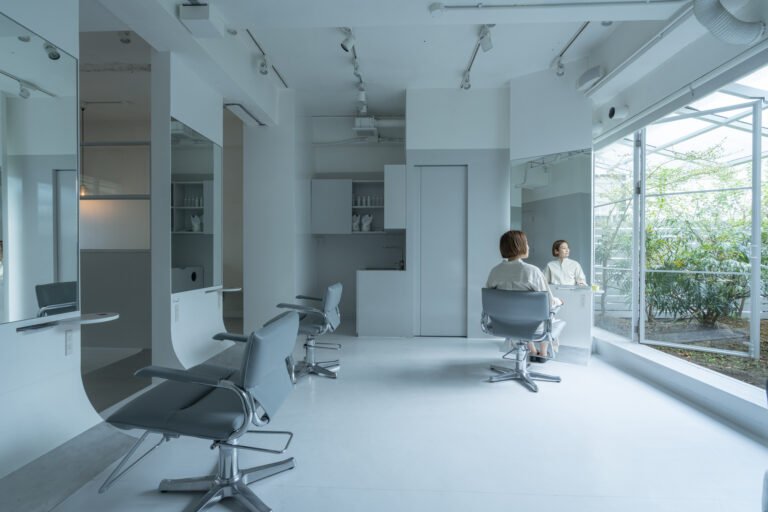kurosawa kawaraten transforms neglected house in rural japan into low-budget home office
revitalizing an abandoned house in japan
Kurosawa Kawaraten‘s latest project sees a renovation of an abandoned cabin, located in the rural area of Chiba, Japan. The plan is based on a concept that brings new life to buildings unnecessary to the owners and locals in order to host outsiders that were affected by the worldwide crisis and had to move to the suburbs.
The brief was to design a multi-purpose structure for happy remote workers, introducing a very innovative lifestyle for Japan. The entire project was established on a low budget, and thus, the design team decided to rejuvenate an available small structure next to the main building, decreasing the construction costs.
As part of ‘the Ichihara Life and Work Commission’, a public-private partnership to accept people who want to move to the countryside, the project is conceived to host people forced to work from home. Therefore, the dwelling takes shape as a mixed-use structure, celebrating the traditional wooden craftsmanship of the area.
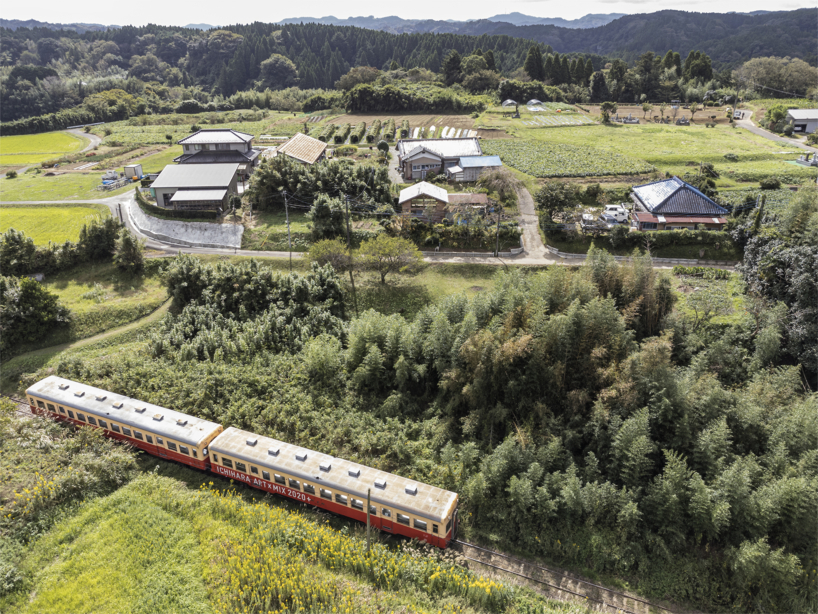
All images by Masato Chiba
a pleasant place that supports working from home
The renovation started by removing all the non-structural walls that divided the interior space and lessening the living area. The design team at Kurosawa Kawaraten maintained and exposed the high shed frame hidden in the ceiling. The foundation was made of concrete blocks, so it had to be reinforced. Since there was no budget for towing the house, the architects decided to partially place the foundation while retaining the upper framework.
In order to create a mezzanine level, the architects lowered one part of the ground floor, employing a minimum change in the external form of the initial structure. Serving as a working space, this step floor level features a wide opening that offers amazing views towards the greenery surroundings, where the gaze can escape. In addition, the soil dug for the foundation was utilized as the finishing for the countertop panel of the Otsu polishing by the plasterer Tokura’s technique, and the bricks created in the workshop were used as the tiling for the reception counter.
When it comes to the materiality, the design team opted for trees (oak, mountain cherry, small oak, and magnolia) available on the side. Overall, the result sees a spacious low-budget house based on sustainable principles that aims to shape a warm atmosphere that supports workers from home.
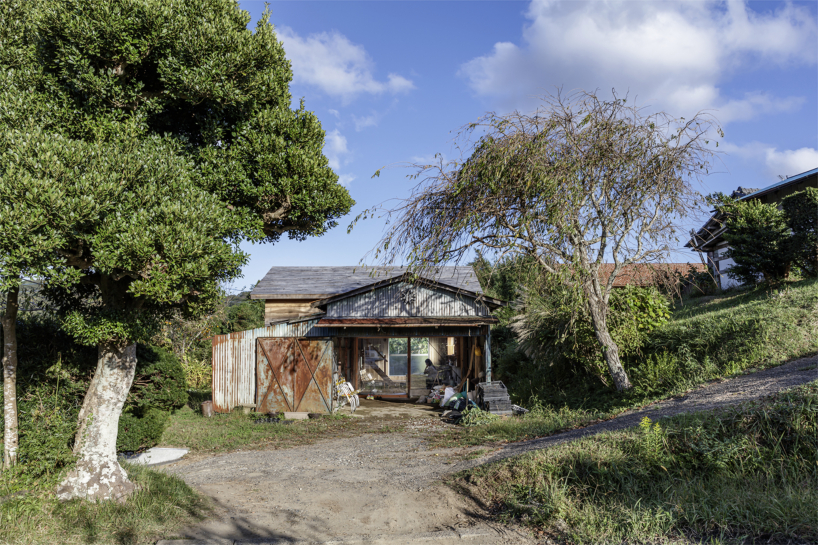
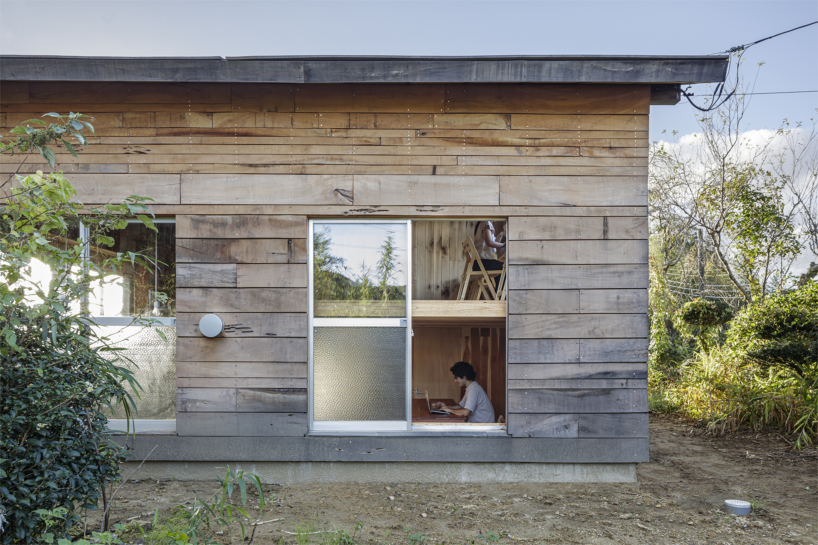
west elevation
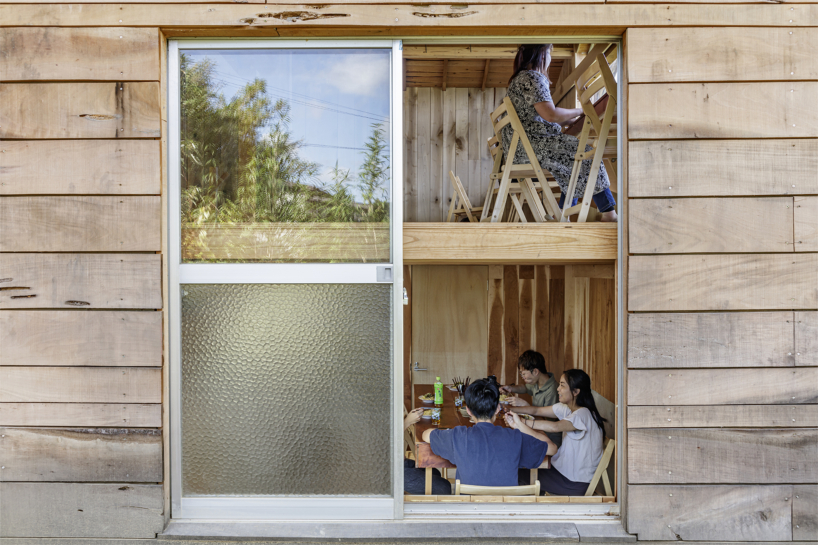
view from outside
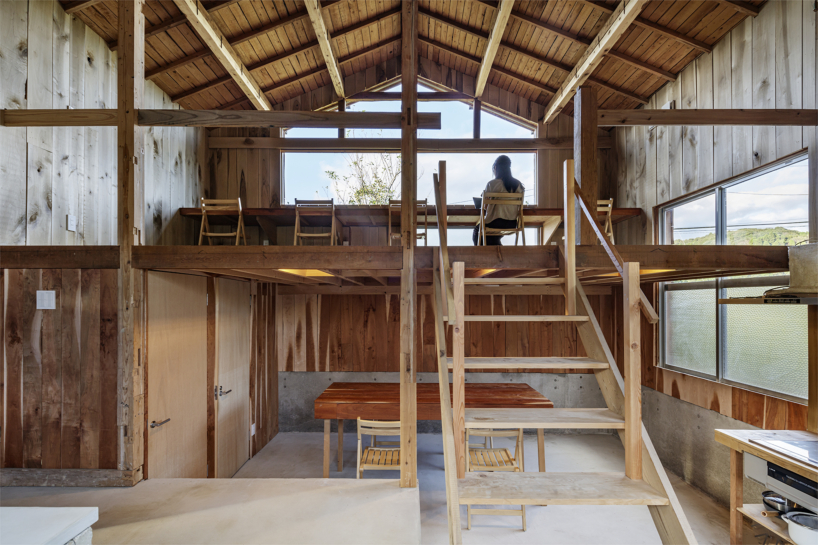
a mezzanine level functioning as office space

